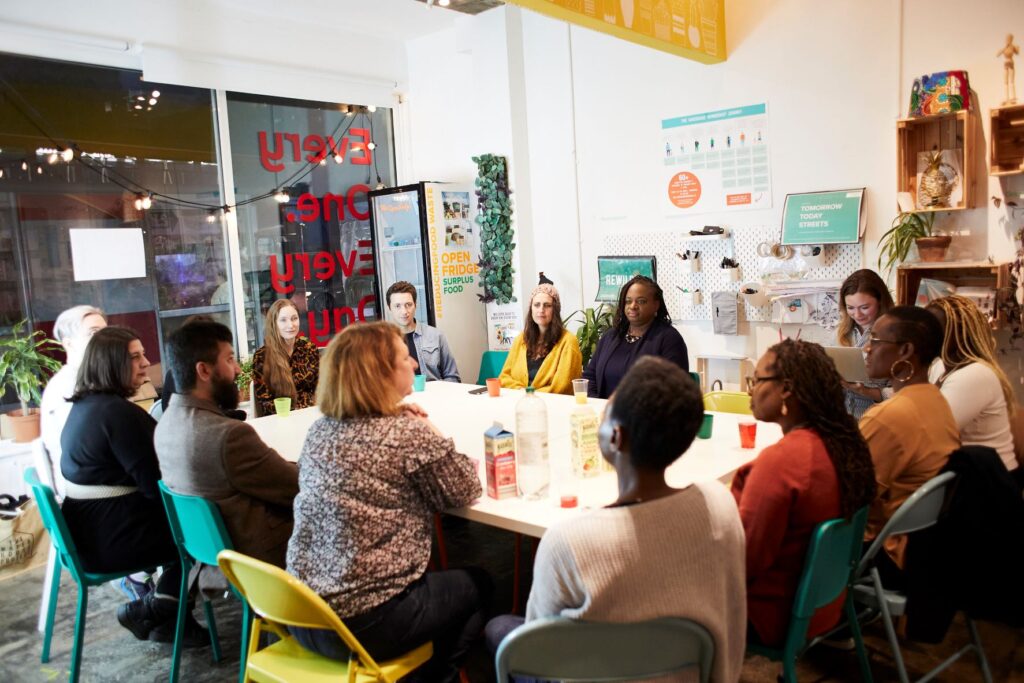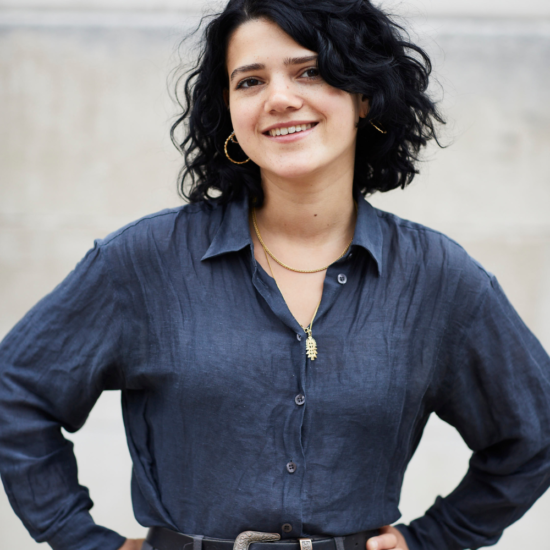Power, accountability, and leadership in place-based change
At our last community of practice meeting, we discussed the importance of sharing power, accountability, and leadership in place-based change. Three guest speakers joined us to discuss their experiences of participatory decision-making in Swansea and Barking & Dagenham.

Why is power-sharing important?
Participatory decision-making gives ownership of decisions to a whole community to find effective options that everyone can live with.
- It encourages a culture and practice of collaboration to drive community development.
- Brings together voices to give individuals and groups confidence in their ability to determine priorities, assets, and needs in their place.
- Holds place-based funders and local governance groups accountable to the affected communities.
- People put more effort into ensuring initiatives are successful when they are involved in the design.
- Working collaboratively can encourage others in the system, such as the local authority or other peer organisations, to do the same.
- It brings people with institutionalised power (e.g. trustees) together with those in the community rather than separating out different ‘types’ of expertise e.g. professional vs lived.
How to share power in place-based change
Susan Rodaway spoke about her time as a community council member in Pennard, Swansea. The council used a digital platform to consult on local priorities and to launch a participatory budgeting initiative. The digital platform, VocalEyes, where Susan now works has raised interest in joining the council, encouraged engagement with social action and local community projects, and allowed the community to select projects that are important to them, such as the creation of a water fountain.
While the use of VocalEyes put the council in touch with more people than paper-based surveying had ever achieved, it had the potential to also exclude some groups. Pennard Community Council took steps to ensure that a lack of access to digital skills or equipment did not impede engagement, including using volunteers to support people to use the platform at the local library and other avenues, such as coffee mornings and lunch-time drop-ins, for those who prefer in-person engagement.
Following Susan, Barking & Dagenham resident and Community Steering Group member Ngozi Obiakonwa and Cameron Bray, the Learning & Participation Manager at Barking & Dagenham Giving, shared their experiences of participatory grant-making and managing a Community Endowment Fund, which will be invested to benefit the borough.
They shared recommendations for how to carry out place-based participatory grant-making:
- Paying people for their time is the minimum in participation. A funder must also allocate resources to pay and provide training so people feel confident in making decisions.
- Allow time for people to learn, adapt and make decisions at different speeds. This is essential if you want to bring diverse groups together inclusively.
- It takes time to build trusting relationships. Ensure that all voices are heard in debates, be open to disagreement, then work to develop a genuine consensus.
- Recognise the concerns that some people have with making decisions about large sums of money. The feeling of accountability to their community can place a lot of pressure on individuals.
- Provide participants with the opportunity to creatively influence the programme, process and decisions so they are not just voices in a room but individuals with insights that could improve outcomes and solve problems
- Acknowledge that you will often have to work through and build trust with local gatekeepers to support you in engaging community members in participation. Respect that many of these will be trusted local organisations and leaders rather than assuming that any existing power structures are inherently problematic.
Resources to support your place-based work
The community of practice is a space for peers to share ideas and resources that have helped them drive place-based change. Resources shared in our last session included:
- Centric Community Research and their model for community change.
- The digital platform VocalEyes provides an open and transparent means for sharing ideas, and for deliberating and progressing the best of these ideas into meaningful action.
- The report A Whole New World — Funding and Commissioning in Complexity from Collaborate CIC
- We’re Right Here, a campaign for community power.
- Barking and Dagenham Giving’s Learning & Participation strategy
- Wicked Spreadsheet – a tool to help run feasibility checks and take over buildings as community assets.
- The Art of Hosting and Harvesting Conversations that Matter.
- The online course from Clear Horizon Academy in Australia – Evaluating Systems Change And Place-Based Approaches.
- A case study on participatory budgeting at Pennard Community Council.
The next place-based community of practice
The next meeting of the community of practice takes place 12-13:30 on 30 June 2022.
We will discuss how to target the root causes of injustice in a place. The session will begin with a practitioner’s discussion about taking a place-based approach to tackling injustice. We will explore how lived experience is central to place-based approaches to targeting injustice, before moving on to an open discussion about:
- Approaches to targeting injustice through place-based work
- The role of lived experience leadership in targeting injustice
- Tools and approaches for identifying the root causes of injustice
- Place-based organisations’ role in addressing justice at a national policy level

- Want to find out more?
- Contact Kezia Jackson-Harman on:
- 2045244916
- k.jackson-harman@renaisi.com
